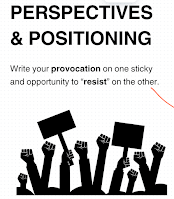Today we wrapped up our inquiry journey for the year by sharing our final reflections with colleagues and the wider Manaiakalani community. Each of us had just three minutes to present - hardly enough time to capture the depth of learning, challenges, and growth we’ve experienced throughout the year!
If you were in the audience, chances are those three minutes flew by, and you might not have caught everything I shared. So, I’ve put together a more detailed version of my presentation below - a fuller reflection on what this year’s inquiry has meant, what we’ve learned, and where we’re heading next.
There is still more to come including data analysis of pre and post evidence of student progress and learning. For now, I hope you enjoyed watching everyone's presentations.
Accelerating Reading Progress: My 2025 Inquiry Journey
Talofa everyone,
This year my professional inquiry focused on a question that challenged and motivated me throughout:
How can we make accelerated shifts in reading for Year 7 and 8 students reading at an 8.5-year level — around three to four years behind?
The Beginning of the Journey
At the start of the year, I was looking for a framework that could guide, support, and push me to be intentional about improving reading outcomes. The Reading Practice Intensive (RPI) programme quickly became that lifeline. It offered structure, checkpoints, content, and motivation - essentially an online coach that helped me stay focused and reflective throughout the year. I’m truly grateful to Manaiakalani for this opportunity and for the RPI team’s ongoing support.
My Focus: Two Catalysts for Learning
Two catalytic aspects of learning guided my practice:
-
Think Alouds – I became very deliberate about planning what I said during reading sessions and explicitly modelling my thinking process out loud. This helped students “see” how a critical reader thinks - questioning, connecting, and inferring as they engage with a text.
-
Extended Discussions – I wanted to increase the output of academic language. Through deliberate modelling, reflective videos, and the use of text sets, students were able to draw on multiple sources of information to synthesise ideas and deepen their understanding.
Why This Became My Focus
Early on, I noticed that many students didn’t actually know how or what to think critically about during reading. My video analysis confirmed this - teacher talk dominated up to 60–70 % of “group discussions.”
Another challenge was access: lower-level readers often missed out on participating in class topics because the texts were simply too difficult. Thankfully, Gemini Gems helped bridge that gap by providing accessible reading material aligned with our topics.
Building a Rich Picture of Learning
To understand progress and needs, I drew on multiple sources of data:
- PAT results and running records to measure growth in reading levels.
- Student voice surveys and face-to-face reflections to understand perceptions and confidence.
- RPI reading surveys and video recordings to capture shifts in participation and discussion quality.
- Regular RPI checkpoints every three weeks to stay on track.
Patterns and Insights
Strengths observed:
- Genuine interest in the topics we covered.
- Positive attitudes toward the change in reading routines.
- More than half of the students receiving extra reading support outside class.
Weaknesses identified:
- Decoding and managing unfamiliar words or phrases.
- Reluctance to contribute - students often too shy to share ideas.
- Uncertainty around what it means to think critically.
Profiling My Own Teaching
Through self-analysis, I recognised my strengths in:
- Breaking complex learning into manageable steps.
- Bringing life to “think-alouds” through expression and character.
- Consistent, positive reinforcement to build confidence.
But I also realised my students would make greater progress if I developed a scaffolded, self-sufficient routine for learning. This meant:
- Embedding vocabulary and critical thinking tasks into our daily routine.
- Using follow-up sessions for consolidation, not new content.
- Maintaining a steady rhythm of learning so new strategies became habits.
Changes to My Teaching Practice
Some of the biggest shifts I made included:
- Fully implementing RPI tasks as they were released every three weeks.
- Practising wait time - being comfortable with silence while students processed and led the discussion.
- Becoming more reflective in balancing reading apprenticeship and guided reading, knowing when to lead, when to guide, and when to step back.
Key Influences and Readings
This journey was supported by incredible mentors and research, including:
- Naomi Rosedale, Kiri Kirkpatrick, Janet Lee, and Toni Nua from the RPI team.
- Rudine Sims Bishop’s concept of “Mirrors, Windows, and Sliding Glass Doors.”
- The Reading Apprenticeship model from Reading for Understanding by Schoenbach, Greenleaf, and Murphy (2012).
Impact on Student Learning
Overall, I would rate the changes as highly effective. Students began:
- Thinking critically through purposeful “think-alouds.”
- Engaging with multiple texts to make meaning.
- Using academic vocabulary more confidently.
- Sustaining richer, student-led discussions.
The evidence spoke for itself:
- A visible shift in student vs teacher talk ratios on recorded videos.
- All students made at least one year’s progress in reading age.
- Two students gained 1.5 years, and two more gained 2 years.
A more detailed analysis of both qualitative and quantitative data will follow once final testing is complete - but the growth we’ve seen already is both encouraging and deeply rewarding.
Closing Reflections
This year’s inquiry reminded me that accelerating progress isn’t about doing more - it’s about doing the right things consistently, reflectively, and with purpose.
When students can hear how we think, see themselves in the texts we read, and own the language of learning, true acceleration happens.
Fa’afetai mo le avanoa. Tofa soifua.
















